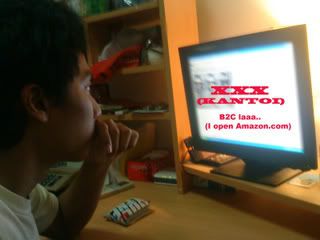The Internet, The Web and Electronic Commerce
HTML -
HTML stands for Hyper Text Markup Language. HTML was meant to make structured documents by denoting structural semantics for text such as headings links and quotes. HTML is not a programming language. It’s a markup language. A markup language is a set of markup tags that consists of tags surrounded by angle brackets within web page content. It is used by HTML to describe a web page. 
Javascript -
Javascript is a scripting language developed by Netscape to enable their designers to create interactive sites. It has similar capabilities to rival other scripting language such as Microsoft Visual Basics. Script languages are easier to code in than the more structured and compiled languages such as C and C++. Everyone can use the JavaScript because it’s an open language and license-free. It is supported by various browsers such as Internet Explorer and Mozilla Firefox. 
Applets -
Applet is a small application designed to be executed directly from another application. Web browsers nowadays are equipped with Java virtual machines, can interpret applets from web servers independently. They are ideal for small Internet applications accessible from a browser. 
Business-to-Consumer E-Commerce -
Business-to-Consumer E-Commerce (B2C) refers to an online transactions. It involves looking through online catalogs that is available to the customers by a certain business organization to see and buy the product online at the tip of the finger. One of the pioneers of the B2C world is Amazon.com. Amazon.com was once an online bookseller but has now grown to include services such as travel services, auctions and online banking.
Consumer-to-Consumer E-Commerce -
Another popular name for Consumer-to-Consumer (C2C) is Peer-to-Peer (P2P). It involves transactions among consumers with the involvement of third-party such as Ebay and PayPal. In P2P network consumer sells goods and services to other consumers. One of the advantages of P2P network is it's cheap and profitable. Perfect for small business owners who is looking for an alternative ways to reduce the cost of business.
File Transfer Protocol (FTP) -
File Transfer Protocol is a simple way to exchange files between computers. FTP is a protocol that uses the Internet TCP/IP protocols to transfer files to other computer. It is the commonly used to download files from any websites.
Filters -
Filter is a program that accepts a certain types of data as inputs transforms it in some manner, and then outputs the transformed data. It is also a pattern through which data is passed. Only the data similar to the pattern are allowed access to a certain program.
About Me
- Amirul Ashraf
- Cheras, Kuala Lumpur
- Yeah, I am Amirul Ashraf. I'm studying in Taylors. Yeah, LoL :)




0 comments:
Post a Comment